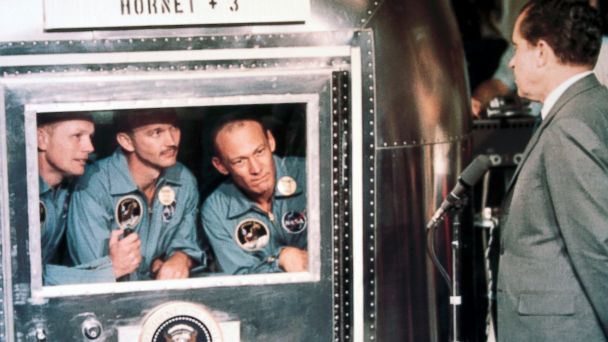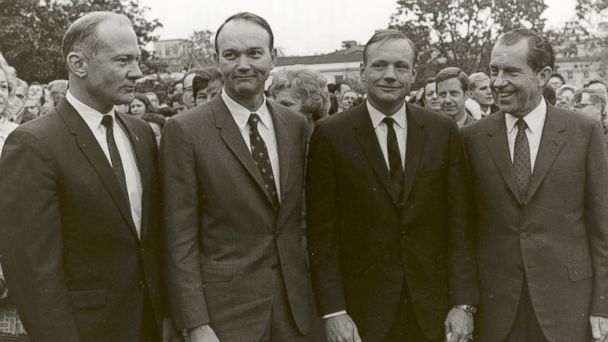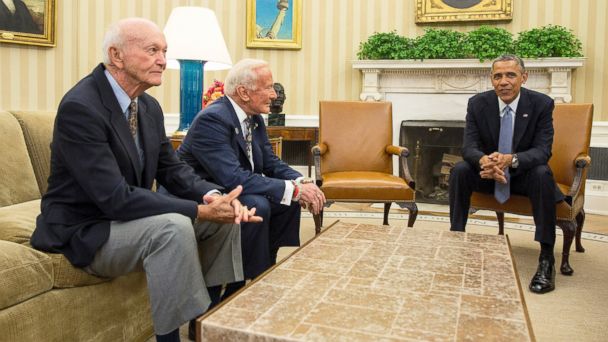Apollo 11 Astronauts at the White House: Then and Now
Legendary moonwalker Buzz Aldrin may have been " out of town" when the world celebrated Apollo 11's lunar landing, but he marked the anniversary today with a presidential handshake and a meeting in the Oval Office - the same spot from whence President Nixon made that famous interplanetary telephone call to the moon 45 years ago.
Nixon called the date July 20, 1969 - the day Aldrin, 39, and Neil Armstrong, 38, stepped off the Apollo 11 lunar module and onto the moon - the "proudest day of our lives."
"For one priceless moment in the whole history of man all the people on this Earth are truly one - one in their pride in what you have done and one in our prayers that you will return safely to Earth," Nixon said during his 1¼ minute satellite conversation with Armstrong.
Celebrating the 45th Anniversary of First Moon Landing
SLIDESHOW: Apollo 11 Anniversary
What Buzz Aldrin Thinks of Commercial Space Exploration
Four months later - following a 21-day quarantine procedure designed to shield Earth from possible lunar pathogens and a 24-country "good will tour" meant to demonstrate the United States' willingness to share its lunar expertise - the Apollo 11 team visited the president at the White House.

(SSPL/Getty Images)

(AFP/Getty Images)
Since then, the astronauts have met with Presidents Carter, Bush, Clinton, Bush - and Obama.
Aldrin and Michael Collins, the astronaut who remained in lunar orbit during the moonwalk, along with Neil Armstrong's widow, Carol, and current NASA administrator Charles Bolden, returned to the White House today to celebrate the 45 th anniversary of their moon landing:

(Joshua Roberts/Reuters)
It's not known what the group discussed.
The Apollo 11 team has "inspired generations of Americans - myself included - to dream bigger and reach higher," the president said in a statement provided to ABC News. "Today, under Administrator Bolden's leadership, the men and women of NASA are building on that proud legacy by preparing for the next giant leap in human exploration - including the first visits of men and women to deep space, to an asteroid, and someday to the surface of Mars."
Before his death, Armstrong lambasted Obama for cancelling NASA's moon return project "Constellation," calling the U.S. spaceflight program "lamentably embarrassing and unacceptable."
"A lead, however earnestly and expensively won, once lost, is nearly impossible to regain," the astronaut told Congress.
Like ABC Politics on Facebook here. You can also follow us on Twitter here.